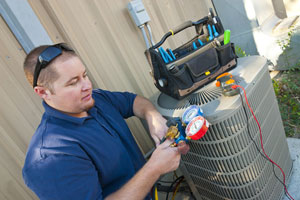Just like organs in the body, the HVAC systems in your home work together to do their jobs. To keep you comfortable year round in the Broken Arrow area's challenging continental climate, all your systems need to be in top form at all times.Know Your Systems' RolesHVAC stands for heating, ventilation, and air conditioning While each of your HVAC systems has its own distinct role, those roles are interconnected.Heating -- A fuel-burning furnace heats air over a flame while a heat pump in heating mode uses refrigerant to absorb warmth from the outdoor air and move that warmth indoors. Both then move warm air into your duct system.Air conditioner -- Your air conditioner or heat pump in cooling mode use refrigerant to absorb heat from inside your home and move that heat outdoors. The resulting cooled air is moved into your ducts.Ventilation -- Your ventilation system consists primarily of your fan, air ducts, and the ducts' supply air registers and return air vents. The same fan and duct system is responsible for distributing both hot air from your furnace and cool air from your air conditioner throughout your home.Why the Connections MatterAny issue with your motor or duct system affects both your heating and cooling systems. For instance, skipping your springtime A/C tuneup could allow problems to develop with your ventilation system. Come winter, those problems will either cost you during your fall furnace tuneup or prevent your furnace from working efficiently.An improperly installed air conditioner can cause cold air to leak into your furnace in winter, increasing your heating load and raising your energy bills.If either your furnace or air conditioner is oversized for your home, you'll end up with uncomfortable temperature swings, excess component wear, poor dehumidification in summer, and needlessly high energy bills.If you expect all your HVAC systems to run reliably, you can't afford to favor one system and skimp on another.For help with the maintenance, repair or upgrade of your heating, cooling or ventilation system, contact us at Air Assurance anywhere in the Broken Arrow area.Our goal is to help educate our customers in the Tulsa and Broken Arrow, Oklahoma area about energy and home comfort issues (specific to HVAC systems).
Credit/Copyright Attribution: “Ioannis Pantzi/Shutterstock”









